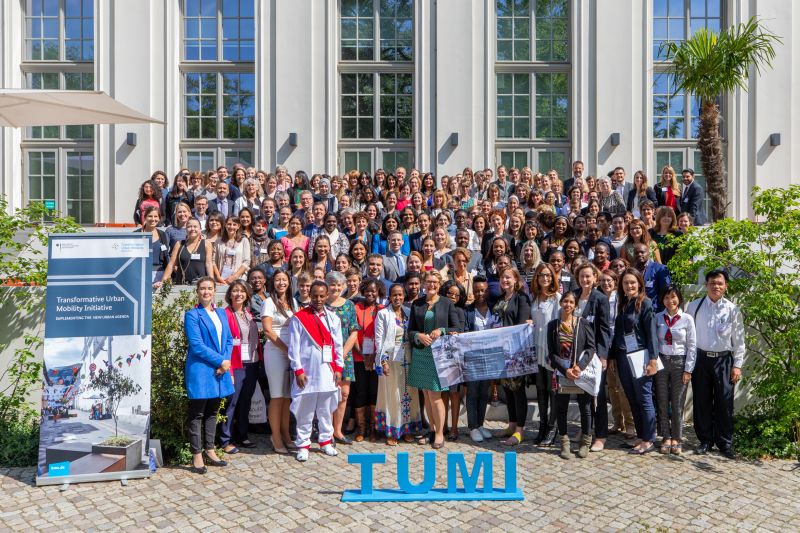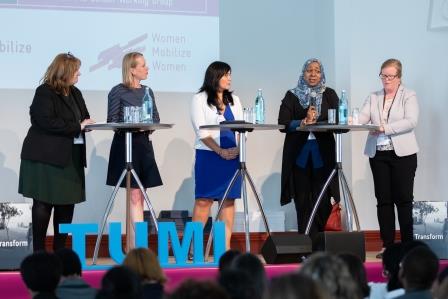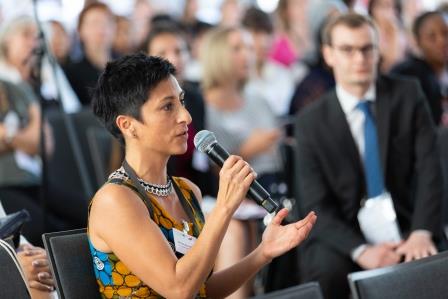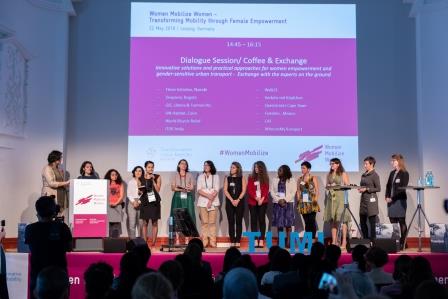This blog was written by Beatrice Ch’ng, Sustainable Mobility Officer, ICLEI World Secretariat
Even as cities grow rapidly, the demand for transport increases, particularly in developing countries where the biggest growth is anticipated. In 2017, the debate about sexual harassment of women has sparked an international outcry and scrutiny. This is a silver lining that inspired the #metoo movement even in the transportation sector and a call to increase attention to the needs of women in transport policy and implementation. While many may perceive transportation system as gender-neutral, the truth is women have different trip patterns and needs from men which may be easily overlooked if only men plan and operate transport, even if unintentionally.
In this context, the first WomenMobilizeWomen conference was organized as a pre-event to the International Transport Forum (ITF) on 22 May 2018 in Leipzig, Germany by the Transformative Urban Mobility Initiative (TUMI) whereby ICLEI-Local Governments for Sustainability is one of the founding members. The conference was widely acclaimed as inspirational with a line-up of only women speakers and moderators from all over the world and attended by 200 participants. It was also creatively curated in different formats: panel discussion, dialogue session, and inspirational talk, where women shared poignant personal stories of them rising above the occasion to fight for equality and change in the transport sector despite facing harassment and setback.
The conference advocated for transport policy, systems, services, and operation to be planned by women and for women. Why is engaging women in the transport field important? The multiple roles of women as a caretaker and worker give a different dimension to mobility. In some cultures, mobility means independence and limiting it would rob freedom away from women – the freedom of safe and equal access to opportunities, freedom from fear and freedom to perform.
Despite the importance of women in the social fabric, the current atmosphere of transport planning and operation has systematically excluded female in the realm. In Mexico, only men can apply for a permit to operate public transportation services including taxis or buses. Although this was not required by the law, the interpretation of the law thwarted it disadvantageous for women. Yolisa Kani, Head of Public Policy in UBER and Chairperson of Metrobus Johannesburg, South Africa highlighted the need for a deliberate effort to change, educate and create space for women.
Over 70% of women experienced sexual harassment in public transport in Karachi, Pakistan (Heather Allen 2018). Similar cases were also highlighted in other cities. The social impact is real: girls choose to skip schools or extra classes at night to avoid travelling after dark, severely limiting equal opportunities for education. It is until city administrations quantify the value of women out of work, the cost of it would be hard to be understood and justified. Simple measures such as adequate lighting in a mass transport system could be an effective means to increase security during operating hours. Who understands these needs the best? Women.
Planning by women and for women does not mean excluding men entirely but women must be included in the conversation to ensure that their different needs can be met. Just as Dr Tania Rödriger-Vorwerk, the Deputy Director of the German Federal Ministry for Economic Cooperation and Development (BMZ) articulated a provocative yet bold statement, which was a common thread deliberated throughout the conference: “when women plan transport, transport is planned for ALL”.
Watch the recordings of the WomenMobilizeWomen conference here
Read the latest publication on Gender Responsive Urban Mobility can be downloaded here









